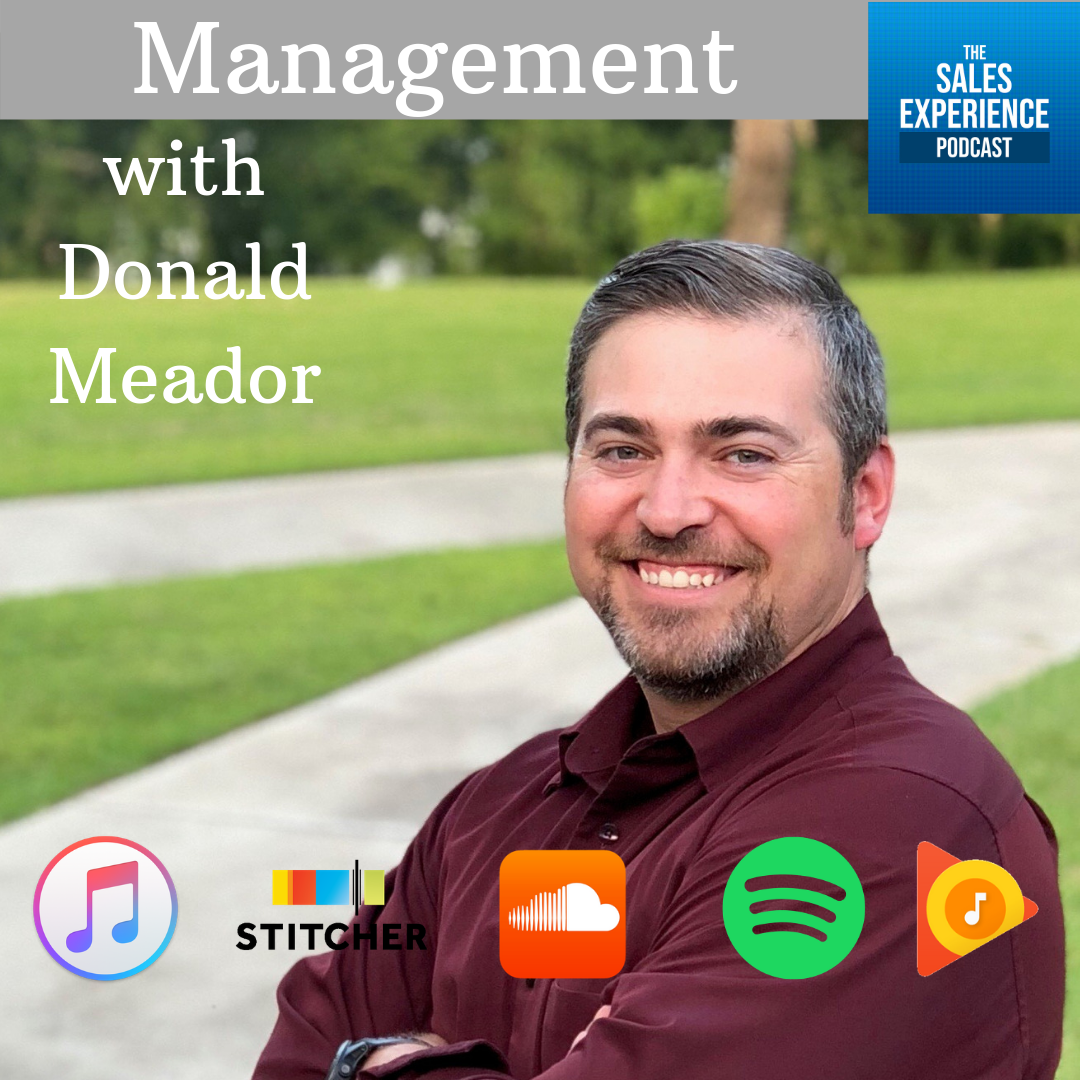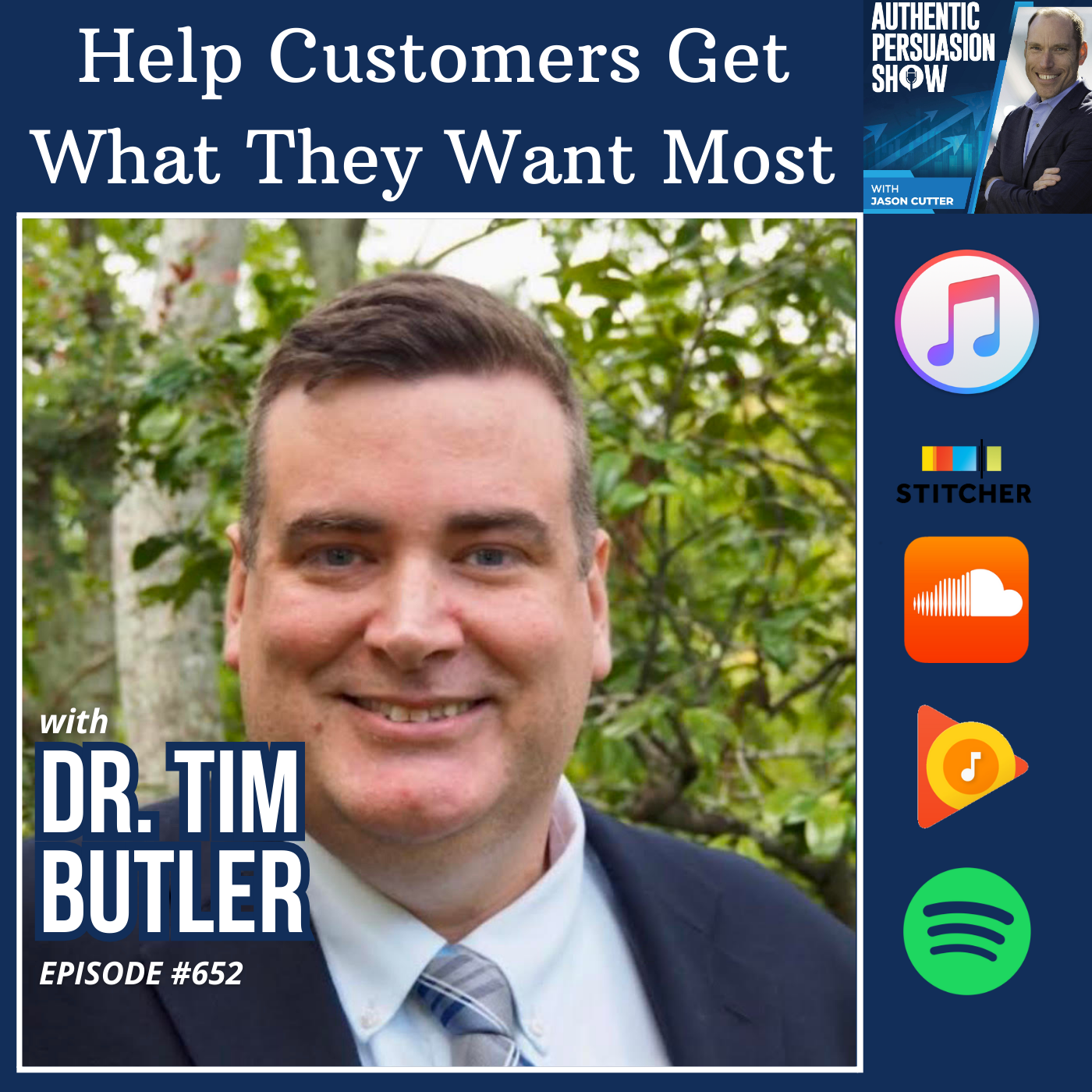Episode Transcript
[00:00:00] Speaker A: Welcome to the authentic Persuasion show. On this episode I want to replay part of a previous show. Maybe you heard the original full length episode and this could be a great refresher and reminder. Or maybe this is your first time hearing this content and the timing could be just right to help you leverage authentic persuasion today in your role, no matter what. Here's to your success.
This is the authentic persuasion show.
Here's the big thing.
[00:00:28] Speaker B: And again, keyboard warriors who want to send me a bunch of messages, listen to this. And if you're in sales, I want you to listen to this as well because it's so important. The key is that there's a difference between earning the right to close and asking for the close. So what I'm saying and what I'm advocating for under most situations, in most conversations, for most sales professionals, not all, sometimes you need to ask for it depends on what you're doing. Some, every customer is going to be different. So sometimes you do need to ask that person because you know that that's what they're going to need. But there's a difference between.
And what I'm saying is not asking for the sale moving forward and being assumptive like a professional, that's different than earning the right to close. Because if we look at that doctor example, they have earned the right to move you forward in getting your arm fixed, both from a trust standpoint, because they have a whole bunch of certificates, they've passed some tests, but also from the rapport, from the empathy, from the uncovering the issue to the hope step, all of those things, when done in a certain order, they have earned the right to close, which means once they earn the right to close, they don't have to ask for the close. What I see is a lot of people ask for the close because they haven't actually done the steps to earn the right to close like a professional. So those are two different things. A lot of people focus on asking instead of earning the right. When you earn the right to close, then you can just assume we're going to move forward. I'm assuming I'm going to help you. I'm going to help you up the mountain. We're going to move forward together. We're going to get this done and that's it. Right? Like, that's what we're going to do is move forward. And I want you to understand that. So the things we covered today is the consultative, consultative approach, which I think everybody can apply in their sales conversations. And then the consultative close, which is okay, so based on this solution, I'm going to go into my assumptive close, which is I am going to assume that if we've made it this far, I've uncovered, like a professional, what your goal is, where you'd rather be, where you'd like to be, what you want to achieve, what fun stuff you want to do, what pain you want to avoid. If I've uncovered that, and I know I have the way to get you there, which is the big key, then based on that, I'm going to assume we're going to get there together, we're going to go together, we're going to move forward together, and it's up to you to raise questions or objections. Otherwise, we're going to go. Because I'm the guide and I know what safety looks like outside of the comfort zone and I know how to get you there. And that is the big key. When you can do that, then you will see amazingly different results for your customers, but also within yourself. Because that I'm telling you, based on what I've seen with the hundreds, probably thousands of salespeople I have trained and seen come and go within the career of sales, and now speaking to groups and working with companies, is that that shift in your mindset will make it so that you realize sales is service. Sales is something I'm doing for somebody and with somebody, and sales doesn't have to be this thing I'm doing to somebody. That's why I wanted to have this discussion this week before we get into urgency, because urgency is a dangerous game. When urgency is done wrong, that's what gives sales this gross, dirty feeling that feels like manipulation. When urgency is done right, then you're actually helping someone get to a better place and keeping them from staying stuck. And that's the key. That's why we're going to talk about that next week. That's why I talked about this this week, because I want to put this fun foundation down one last part before we get to urgency.
![[756] Earning the Right to Close](https://episodes.castos.com/salesexperiencepodcast/images/1752331/c1a-4d8w-5r5jrd5va0x2-gzu9ue.png)


